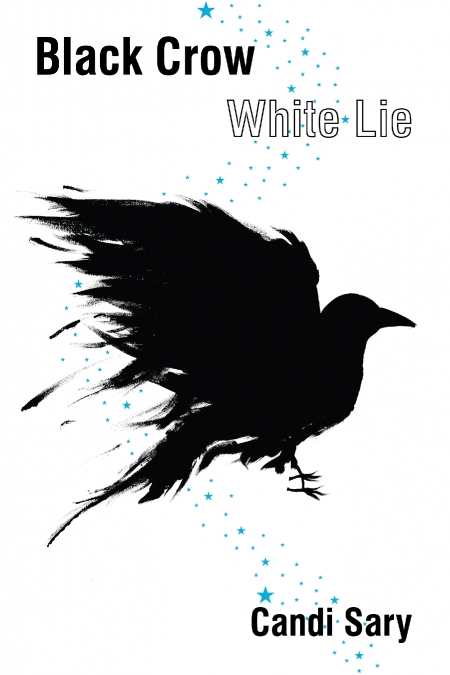Black Crow White Lie
Few novelists can arrestingly channel the voice of a neglected fourteen-year-old boy, half street urchin, half spiritual shaman, and emerge with an engaging first-person narrative that doesn’t drip with sentimentality or patronize teen culture. Candi Sary can; she gives us Carson Calley, who moves with his alcoholic, off-kilter mother from one seamy Hollywood, California, motel to the next. Yet he lives somewhere else, a man-child in a world of forced maturity and forged adult friendships, where he comes to understand an extraordinary gift that resides within.
Throughout their tumultuous tour of subsistence housing, and between her erratic drinking binges, Carson’s mother has told him stories—about past lives, a deceased hero father, and the boy’s own power to heal by laying on hands. And Carson believes them; that is, after all, what vulnerable children do, particularly when the stories offer a better view than the hard streets outside and the wobbly family structure within. With time to spare and his mother distracted, Carson befriends two oddball business owners from the underside of his neighborhood and sets out to test his purported ability to heal others. And when he earns enough to travel to the supposed burial site of the hero father he’s been told about, everything in his already tenuous world seems to unravel.
The fact that every adult who crosses the path of this trusting, unsupervised teenager treats him well, and that no adult even contemplates contacting a social service agency requires some suspension of belief. Yet, overall, Sary deftly creates a world and characters that captivate with a blunted charm bred from authentic frailties and strengths.
This slim novel was a semifinalist in the Amazon Breakthrough Novel Award for good reason. With short chapters totaling 160 pages, it’s written with generosity and is perfectly paced, from the zing of the fifth paragraph to the quietly powerful conclusion.
The question of stories stays central throughout. Carson explains, “I liked stories. I liked the way they had the power to make sense of life. You could go through a chaotic experience and come out if it feeling confused, but once you tell it to someone as a story, somehow it starts making sense. And I liked watching people cross over to that place that made sense as they retold their tales. I felt like I had company in that safe place away from chaos.”
This book is a place like that, too.
Reviewed by
Lisa Romeo
Disclosure: This article is not an endorsement, but a review. The publisher of this book provided free copies of the book to have their book reviewed by a professional reviewer. No fee was paid by the publisher for this review. Foreword Reviews only recommends books that we love. Foreword Magazine, Inc. is disclosing this in accordance with the Federal Trade Commission’s 16 CFR, Part 255.

